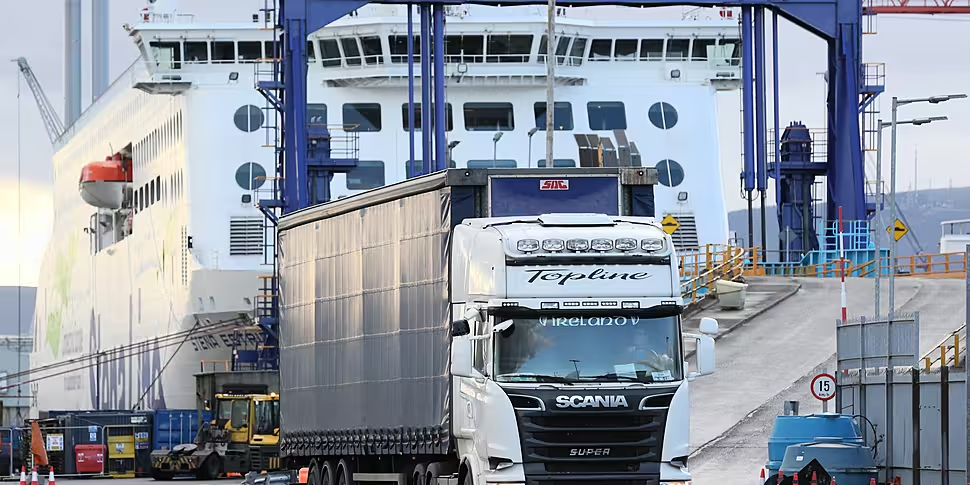The Irish Road Haulage Association says the upcoming end of the Brexit grace period is daunting.
The April 1st deadline is fast approaching with many industries voicing their concerns.
This period limits the number of checks applied to some goods travelling from Britain to Northern Ireland.
President of the Irish Road Haulage Association, Eugene Drennon, says it is necessary to continue business without disruption.
He told Down to Business with Bobby Kerr: "We are the overzealous guardians of the back door of Europe.
"We should play the ball not the man, and in this case, the ball is business, how we get business, how we get it moving, how we get it moving seamlessly.
"The man is the UK, and for ancestral reasons and political reasons of old, we may say, 'Oh they're gone now, put the boot in them', but that's not for us to do.
"We are their neighbour, their business is on our doorstep, we must find seamless ways of continuing the business."
The cost to Ireland of not doing this would be transferred on to the consumer, Mr Drennon warned.
From April, goods coming into Ireland from Britain will have to be declared before leaving the UK for the customs authorities there, he explained.
The same scenario will be necessary for goods travelling from Ireland to the UK.
Impact on consumers
Mr Drennon's comments about price hikes were echoed by Independent TD for Wexford Verona Murphy.
The former haulage company holder told the same programme that consumers "are going to pay in the shop and basket" due to Brexit and the associated regulatory costs of bringing goods into the country.
Deputy Murphy said that Ireland no longer produces "stable diet products such as sugar and flour" and so we are "definitely" going to see a price increase in goods that use those as ingredients.
"Our closest neighbour is where most of our flour comes from, the difficulty with that is to make up the protein levels of the flour they add a Canadian product which adds a tariff that drives up the cost," she said.
"The customs procedure, the Single Market procedure, is a 30-year-old system, it's far too arduous, we will never get to a [sustainable] level of trade."









